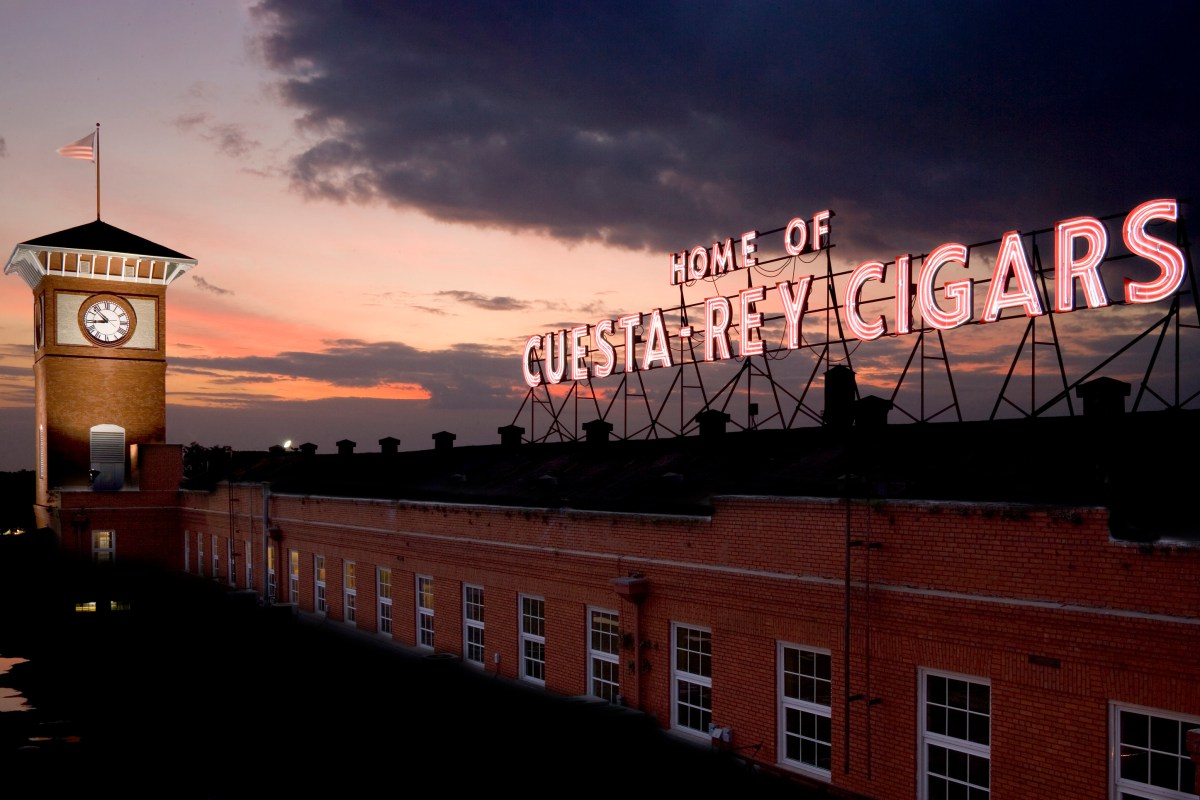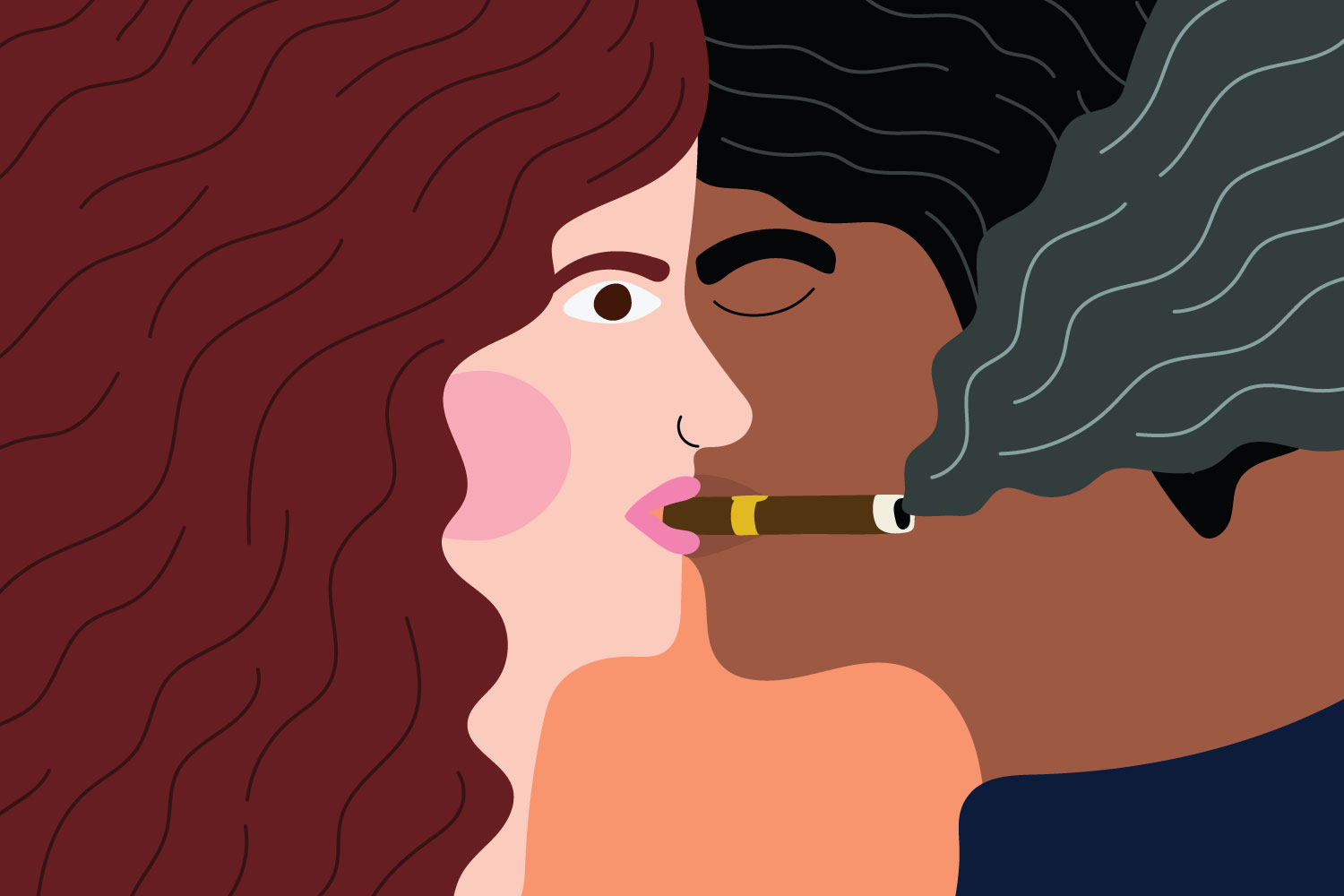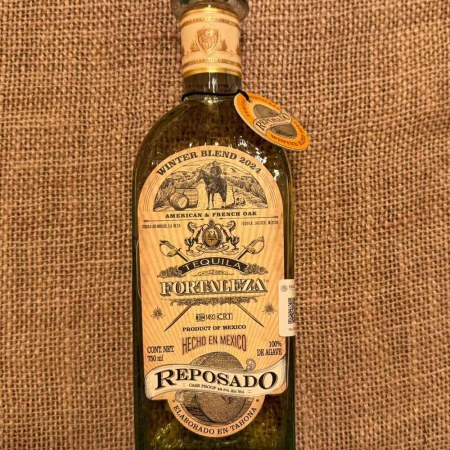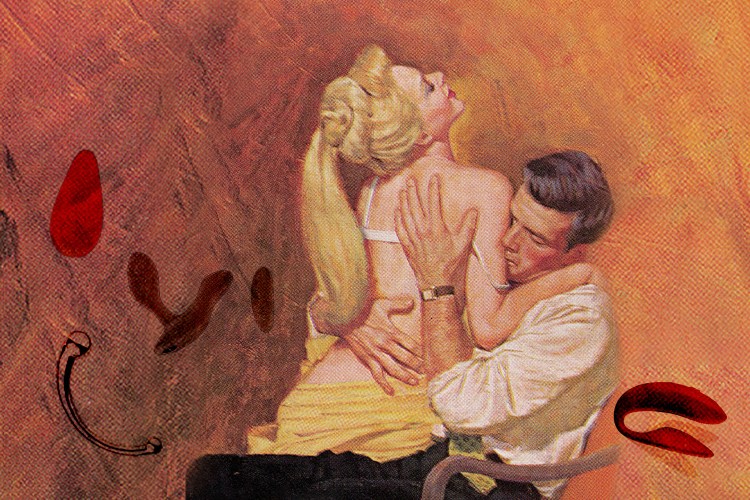If you’ve been smoking cigars for a couple decades, chances are you’ve noticed that finding a place to light up is increasingly difficult. The first statewide smoking ban in bars arrived in California in 1998, and the trend has accelerated ever since. Twenty-eight states now have comprehensive indoor smoking bans on the books. So do more than a thousand American cities and counties. Want to smoke on an outdoor patio instead? There are more than 500 places that restrict that, too. What’s a leisurely cigar smoker to do? We don’t have the technology to travel back in time, but we do have the next best thing: a vacation to Tampa, Florida, where the atavistic pleasures of cigar culture live on.
Specifically, lovers of the leaf will want to head to Ybor City, the old Latin Quarter that earned Tampa its nickname Cigar City. It’s immediately apparent that time flows a bit slower here. Your first stop might be the ornate Columbia Restaurant, opened as a café for local cigarmakers in 1905 and now an essential destination for Cuban sandwiches and Spanish fare, laying claim to the title of Florida’s longest-running restaurant.
Or you might pause to meet some chickens.
Walking the streets of Ybor, you’ll soon find yourself sharing sidewalks with avians you don’t normally encounter in modern American cities. Wild chickens, presumably descended from those kept by local families long ago, have free rein here. An ordinance makes it “unlawful for any person to hunt, kill, maim or trap” any birds within the city, or even to attempt to do so. Be nice to the chickens, or else.
The main street in Ybor is 7th Avenue. Why the chickens cross this road is an eternal mystery, but the attractions for cigar smokers are clear enough. It’s the densest congregation of cigar lounges and shops you’ll find anywhere in the United States, a few of which roll their own cigars in-house. “We call them ‘buckeyes,” says Holden Rasmussen, the company historian at J. C. Newman Cigar Company, the last of the big cigar factories still operating in Tampa. “That used to be pretty common in Ybor City because so many people had cigarmaking experience. You used to be able to go to the Oliva tobacco factory or leave the tobacco warehouse and buy like a pound of corojo, a pound of tripa [filler], and a pound of Connecticut broadleaf and be able to roll your own cigars.”
Just such a tiny independent operation is how Julius C. Newman began in 1895, starting out with loose tobacco and a rolling table in a barn in Cleveland, Ohio, before eventually making his way Tampa. Today truly individual buckeyes no longer ply the trade in their off hours, a practice that ended with contemporary licensing regulations, but the tradition is kept alive at shops like La Faraona, Nicahabana, and Tabanero. Stop by any of them to try cigars made on site and you may catch the professional rollers at work, taking the whole process of making a cigar from start to finish.
The big cigar factories that once drove the Ybor economy have also mostly disappeared. The labor-intensive process of rolling premium cigars by hand is difficult to scale in the United States, so most of this work has shifted to Latin America. You can still spot the old factories around town, often with their historic signs intact, but nearly all of them have been repurposed (including one that is now a Church of Scientology).
The last man standing of the big cigar factories is J. C. Newman, whose owners are determined to keep the cigar business alive in Tampa. The big brick building known as “El Reloj,” or “the clock,” now operates as both a genuine cigar enterprise and a museum offering public tours. You don’t have to be a smoker to be intrigued by the tour’s dives into the history and production of cigars. Highlights include the story of Julius Newman’s immigration to America — his misspelled middle name “Caeser” was bestowed upon him by an immigration officer — and what is likely the last sack of pre-embargo Cuban tobacco in the country.
The real action, though, is in the live production of cigars. J.C. Newman contracts the vast majority of its hand-rolling of premium cigars to Arturo Fuente and then imports them; the El Reloj factory straddles a middle ground between full automation and traditional production. The machines they use were produced by a subsidiary company of American Machine and Foundry in New Jersey from the 1930s to the 1960s; “antique hand-operated” is how Rasmussen describes them. “It’s not like a cigarette machine, you don’t flip a switch and walk away and it cranks out a million cigarettes. There’s an operator there who’s putting each wrapper on by hand, who’s doing quality assurance to make sure that even though it’s a $1 short-filler cigar, it’s still the best $1 short-filler cigar you could buy.”
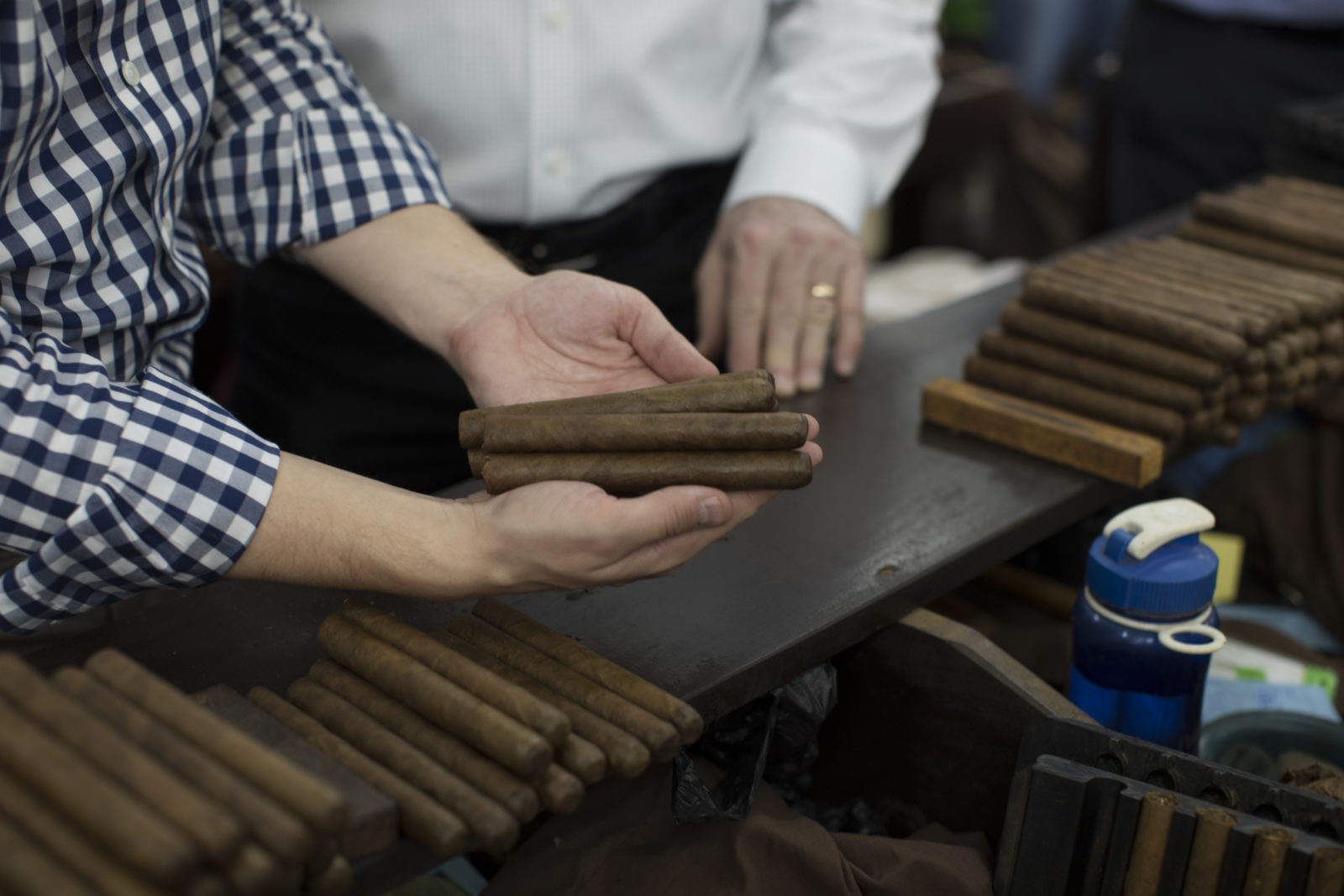
The process is fascinating to watch. Like so much else in Ybor City, it feels a bit like stepping back in time, as the operators and pneumatic machines carry each cigar through the process of bunching the filler, binding it together and finally wrapping in pure tobacco leaf. The rolling room is humming and the aromas are amazing.
At the top floor of the brick factory is where a few skilled rollers still make premium cigars entirely by hand. The cigar is the “American,” Newman’s revival of one its brands from 1910. Today the cigar is distinguished by being made entirely with American tobaccos: filler from Mennonite farmers in Pennsylvania and heirloom Connecticut Havana, binder of Connecticut broadleaf, and a unique wrapper of Florida Sungrown, farmed right in the sunshine state. Take a few home; it’s an earthy, nutty, and a wonderfully unique smoking experience.
As interesting as the tour is, you’re presumably going to want to enjoy a cigar in town too. Ybor offers plenty of options, including the spacious King Corona Café and Bar where you can relax with a cigar and a Cuban coffee. But maybe you should go to church instead? No, really. One of the best places to smoke a cigar in all of Tampa is a converted church from 1906.
The First Congregational Church of Tampa has been recently reborn as Grand Cathedral Cigars. “Finding the cathedral was just fate,” says owner Angela Yue, who moved from California to open it. “My partner Nathan was playing cards with some of his buddies. He said, ‘Why don’t you go look for some properties online … try 33602,” not knowing it was the Tampa zip code. We came across the cathedral building. Jokingly I said that would be so cool to turn it into a cigar lounge. Long story short, the owner of the building and realtor are both avid cigar smokers and loved the idea. We were on a plane the next week to sign the lease.”
It’s a good thing they did, because the restoration is incredible. The old church provides a beautiful wooden structure along with the original brick walls and floor, with natural light flowing in by day and new stained-glass windows glowing at night. The walk-in humidor offers a massive selection, and the bar provides a healthy offering of whiskeys and beers, including local stalwart Cigar City Brewing. It’s a short ride from the heart of Ybor and easily worth the trip.
“Tampa is the home to the cigar capital of the world. Cigars are a lifestyle here, it’s not just a hobby,” says Yue. “We live, breathe and embody the cigar culture in Tampa. I always joke around and say the day that Tampa outlaws or bans cigar smoking is the day that the entire country is smoke-free.” Let’s hope that day is a long way off. But in the meantime, if you enjoy an occasional fine cigar, you may want to book a trip to Tampa right now to be safe.
This article was featured in the InsideHook newsletter. Sign up now.
